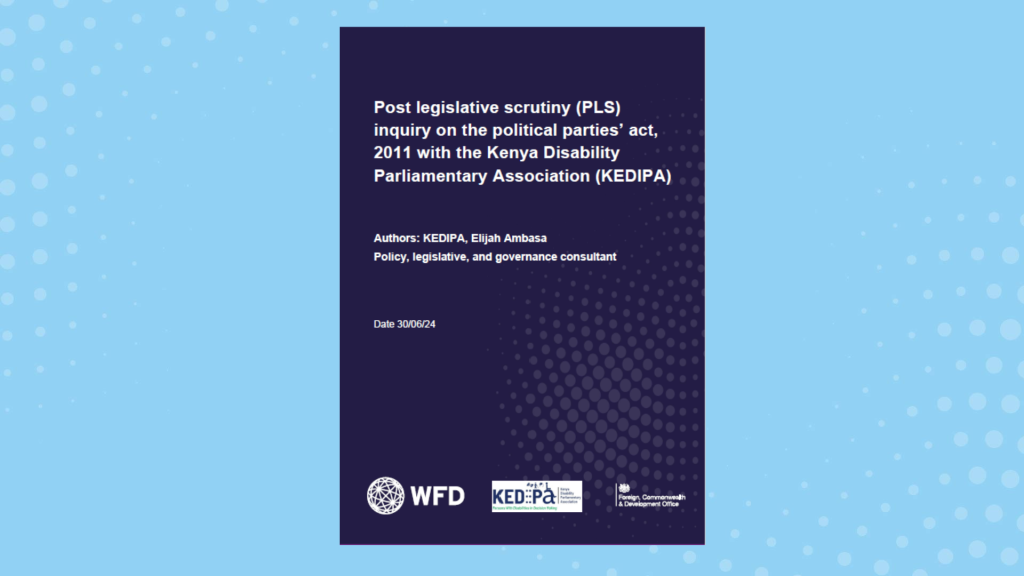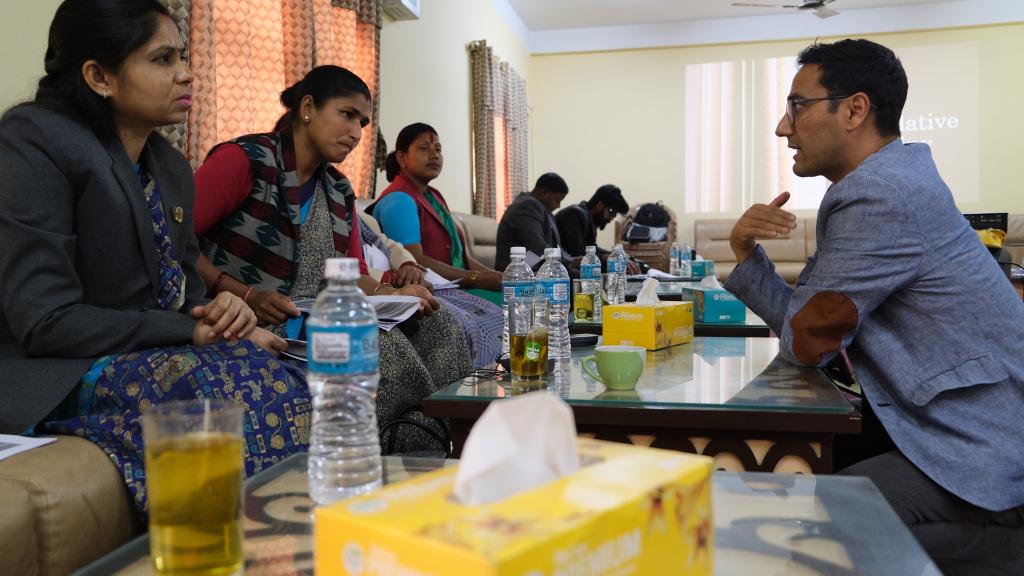This evaluation covers WFD’s work on post-legislative scrutiny (PLS) between 2017-22, in the period of WFD’s 2017-22 Strategic Framework. It finds that WFD’s work in PLS is relevant, impactful, and tailored to meet the emerging needs of parliaments as they begin to introduce PLS. WFD has also expanded the research base and strengthened global networks on PLS, creating a significant impact within the parliamentary strengthening community more broadly.
Introduction
Since 2017, WFD’s work on PLS has grown to form a core part of the organisation’s democracy delivery approach, integrating into WFD’s programmes and policy support functions. This evaluation assesses the impact of six years of work.
The primary purpose of this evaluation is to better understand how WFD is contributing to its intended outcomes in PLS programming, including identifying what has worked well and what has not worked well, since 2017.
Overview of findings
WFD has built a valued reputation and evidence base in PLS and is successfully using this to advocate internationally for the introduction of PLS pilot inquiries across a range of developing parliaments. WFD has also used this influence to advise on the strategic direction taken by parliaments as they embark on their journeys to undertake their initial PLS pilot inquiries.
Whilst the individual PLS pilot inquiries have enjoyed varied success in achieving either legislative or policy responses from governments, it’s clear that WFD has played an important role in establishing PLS as a viable oversight tool in the contexts examined. This evaluation finds strong evidence that WFD has contributed to enhancing the technical capacity of parliamentarians and parliamentary staff. In light of this, parliaments have warmly embraced PLS but only among a select number of PLS champions within their respective institutional contexts. This has contributed to the introduction of PLS pilot inquiries and the insertion of PLS review clauses in legislation across a range of parliaments (including in Albania, Bosnia and Herzegovina, Kosovo, Nepal, North Macedonia and Ukraine, among other nations). In particular, PLS pilot inquiries have been introduced by parliaments looking for ways to exercise oversight during the COVID-19 pandemic.
Summary of main findings
Conclusions
WFD has contributed to shaping the development agendas of several developing parliaments, whilst making excellent use of its grant-in-aid (GIA) funding and convening capabilities to establish a global network of PLS practitioners and experts. During the COVID-19 pandemic, WFD’s ability to leverage institutional relationships and adopt an advisory role to many parliamentary stakeholders enabled greater scrutiny of emergency legislation, resulting in enhanced pandemic responses.
The promising results documented in the evaluation report indicate that WFD and its partner parliaments have demonstrated the value of PLS as a concept and oversight tool. WFD’s next steps should focus on reinforcing and scaling results during its current 2022-25 strategy.





